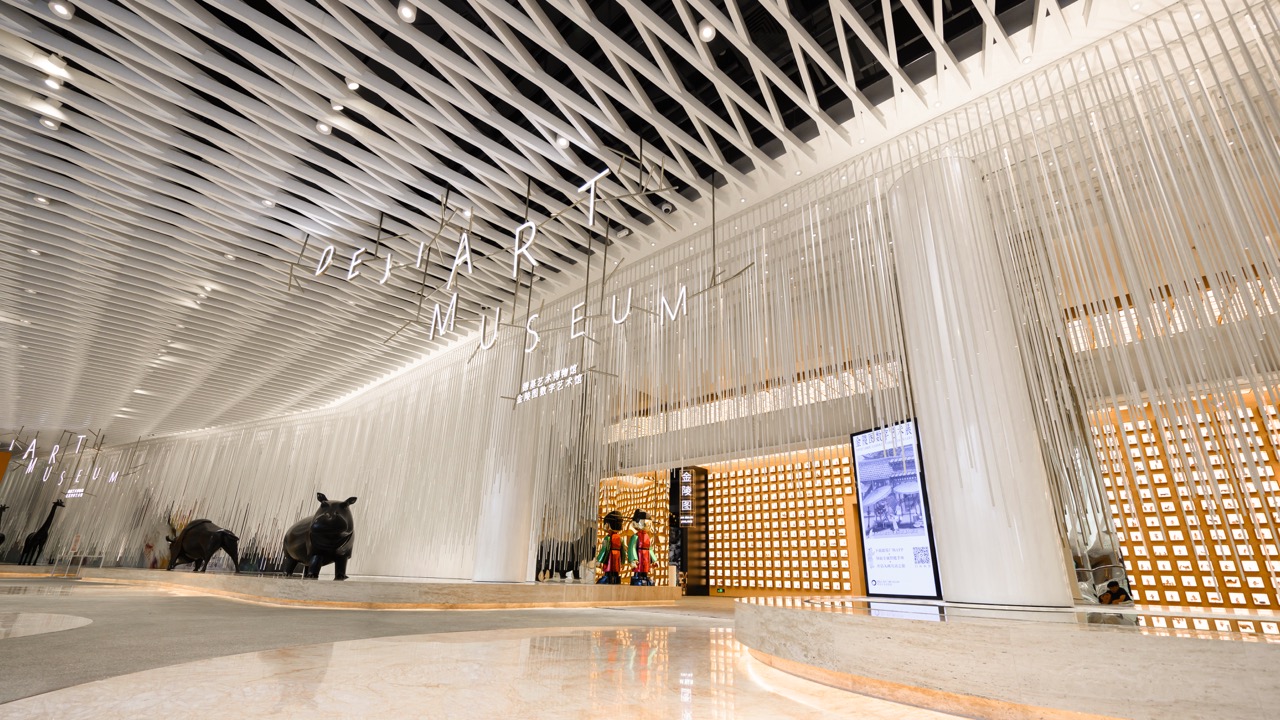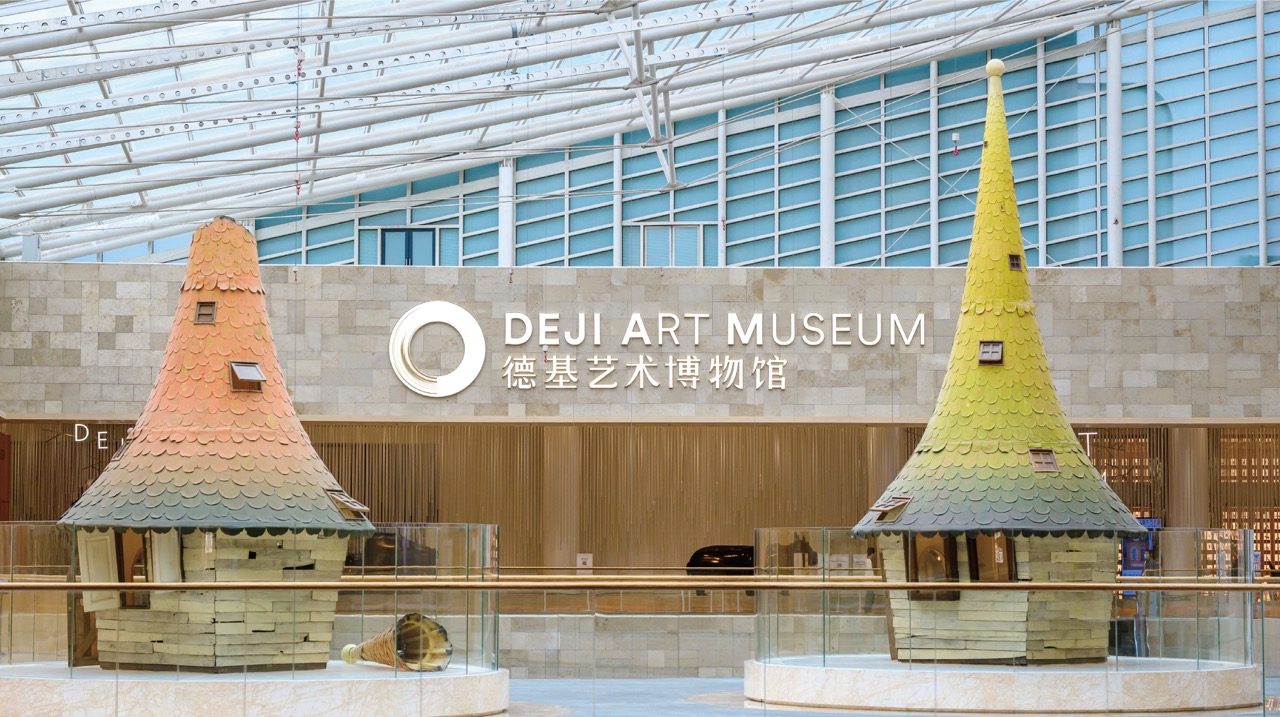Plan your visit
Deji Art Museum is a non-profit art institution founded by the Deji Group. Located in Nanjing, a major metropolis in Eastern China renowned as one of the “Four Great Ancient Capitals of China”, the museum is committed to building a comprehensive art institution and cultural platform that bridges art across cultures and time.
With its global vision, contemporary perspective, and regional cultural reflection, Deji Art Museum is dedicated to collecting, preserving, interpreting, and presenting works of art ranging from ancient Chinese art to Chinese and international modern and contemporary art, embracing art’s transformative power to connect, inspire, and uplift.
Deji Art Museum’s collection of ancient Chinese art has evolved from a systematic approach to collecting nearly three decades, mainly encompassing ceramics, paintings, calligraphies, Buddhist statues, and furniture, offering a remarkable survey of Chinese art, thought, and creativity from the Neolithic period to the last imperial dynasty in Chinese history. Cocurrently, the museum has gradually built up its increasingly well-rounded collection of Chinese and international modern and contemporary art, examining the dynamism of artistic development and creative exchange from diverse cultural contexts and time periods.
Deji Art Museum organizes its collection, exhibitions, research, and programs by reflecting on and reactivating the regional culture heritage of Nanjing, a city with 2500-year history as a crossroad for inter-civilization dialogues, and a nexus where diverse views of nature and the universe grow and interact. The museum strives to promote international cultural exchange between China, Asia, and beyond, enrich and expand the traditional art historical narrative by incorporating multiple perspectives from the present, and foster insights and imaginations through boundary-breaking ideas that connect human life with the universe, nature, and technology developments of our time. It also serves as a platform that empowers the public to experience and understand art and culture in new and engaging ways.
The main venue of Deji Art Museum is situated on the eighth floor of Deji Plaza Phase II in Xinjiekou, “China’s No.1 Business Circle” at the intersection between Nanjing’s cultural axis and “museum mile”. It engages the visitors from both the region and around the world with art in a context that integrates the historical heritage of the city with its bustling urban life. A forthcoming new venue of the Deji Art Museum will be located at Xianlin, the east of Zijin Mountain, Nanjing. With rivers, mountains and higher-education institutions, it embodies symbiotic aesthetics that integrates nature and humanity. Stay tuned.

Opening Hours
Tuesday: 14:00-24:00
Monday, Wednesday to Sunday: 10:00-24:00
Address
8F, Phase II, Deji Plaza, No.18 Zhongshan Road, Nanjing, China
Tel: +86 25 86777999
Getting There
Public transport: take Metro Line 1 or 2 to Exit 7, Xinjiekou Station.
Drive: navigate to the Deji Plaza basement car park, take the Deji Plaza Phase II elevator to the 8th floor.
Deji Art Museum is a non-profit art institution founded by the Deji Group. Located in Nanjing, a major metropolis in Eastern China renowned as one of the “Four Great Ancient Capitals of China”, the museum is committed to building a comprehensive art institution and cultural platform that bridges art across cultures and time.
With its global vision, contemporary perspective, and regional cultural reflection, Deji Art Museum is dedicated to collecting, preserving, interpreting, and presenting works of art ranging from ancient Chinese art to Chinese and international modern and contemporary art, embracing art’s transformative power to connect, inspire, and uplift.
Deji Art Museum’s collection of ancient Chinese art has evolved from a systematic approach to collecting nearly three decades, mainly encompassing ceramics, paintings, calligraphies, Buddhist statues, and furniture, offering a remarkable survey of Chinese art, thought, and creativity from the Neolithic period to the last imperial dynasty in Chinese history. Cocurrently, the museum has gradually built up its increasingly well-rounded collection of Chinese and international modern and contemporary art, examining the dynamism of artistic development and creative exchange from diverse cultural contexts and time periods.
Deji Art Museum organizes its collection, exhibitions, research, and programs by reflecting on and reactivating the regional culture heritage of Nanjing, a city with 2500-year history as a crossroad for inter-civilization dialogues, and a nexus where diverse views of nature and the universe grow and interact. The museum strives to promote international cultural exchange between China, Asia, and beyond, enrich and expand the traditional art historical narrative by incorporating multiple perspectives from the present, and foster insights and imaginations through boundary-breaking ideas that connect human life with the universe, nature, and technology developments of our time. It also serves as a platform that empowers the public to experience and understand art and culture in new and engaging ways.
The main venue of Deji Art Museum is situated on the eighth floor of Deji Plaza Phase II in Xinjiekou, “China’s No.1 Business Circle” at the intersection between Nanjing’s cultural axis and “museum mile”. It engages the visitors from both the region and around the world with art in a context that integrates the historical heritage of the city with its bustling urban life. A forthcoming new venue of the Deji Art Museum will be located at Xianlin, the east of Zijin Mountain, Nanjing. With rivers, mountains and higher-education institutions, it embodies symbiotic aesthetics that integrates nature and humanity. Stay tuned.
Opening Hours
Tuesday: 14:00-24:00
Monday, Wednesday to Sunday: 10:00-24:00
Address
8F, Phase II, Deji Plaza, No.18 Zhongshan Road, Nanjing, China
Tel: +86 25 86777999
Getting There
Public transport: take Metro Line 1 or 2 to Exit 7, Xinjiekou Station.
Drive: navigate to the Deji Plaza basement car park, take the Deji Plaza Phase II elevator to the 8th floor.



